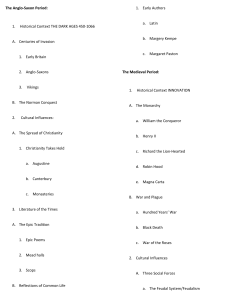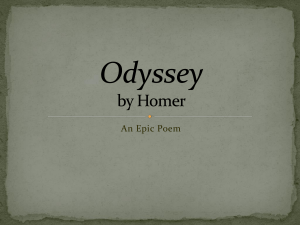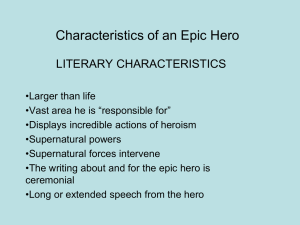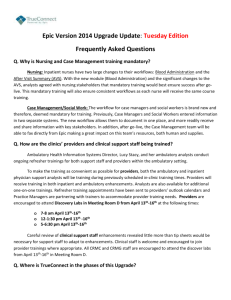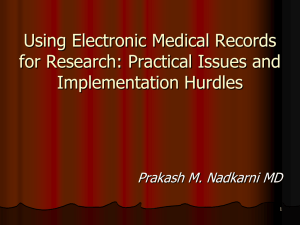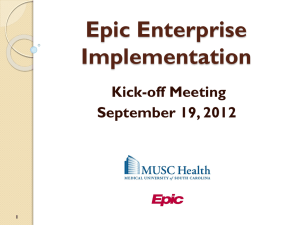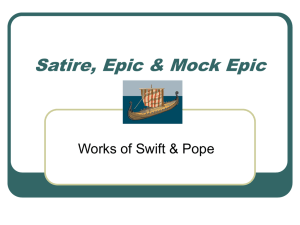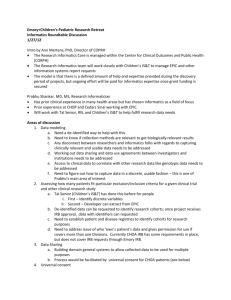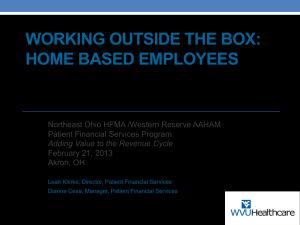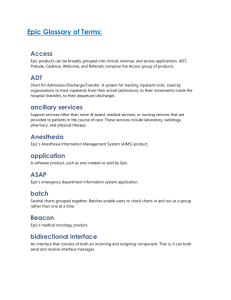Epic Implementation Organization structure
advertisement
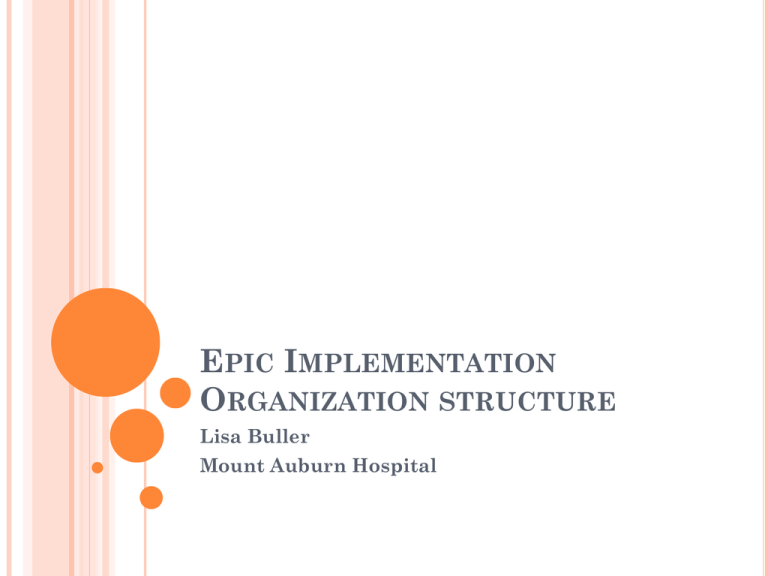
EPIC IMPLEMENTATION ORGANIZATION STRUCTURE Lisa Buller Mount Auburn Hospital OVERVIEW OF AN EPIC TEAM Most success with dedicated staff. This leads to implementations that are on-time and overall will create a team that is able to support the system long-term. Want to find enthusiastic leaders who understand the organization and enjoy working in a focused and intense atmosphere. PROJECT SPONSORS Member of executive team Provides vision and reinforces project’s relationship to the organization’s goals and strategic initiatives PROJECT DIRECTOR Ensures the project is on the right path and has the visibility it requires Guides the project team through the implementation and is the central point of communication Manages the scope, cost, schedule and quality of the project Manages staff and resource allocation Is familiar with all aspects of the implementation Communicates regularly with business leaders in the hospitals, clinics and billing offices. Sets proper expectations for all members of business community CLINICAL CHAMPIONS Clinical Representatives who participate in system design and configuration Support and promote the implementation project to clinicians and administrators Encourage other clinicians to participate in the design and validation of the system so a sense of community and ownership can be established Serve as a liaison between clinicians, project governance, sponsors and the project team Develop and chair clinician committees tasked with validating clinical content and developing new content ACCESS AND REVENUE CYCLE LEADS Key operational staff members who remain in their roles while helping the project team assess implementation strategies and the impact on workflows and operations Work closely with the application analysts on issues and install decisions Areas needed include: Patient Access, Bed Planning, Environmental Services, Case Management, Front Desk, Scheduling, Referrals, HIM, Coding, Charge Capture, Billing, Claims, Payment Posting, Insurance Follow-up, Self-pay Follow-up, Finance, Home Health Billing APPLICATION MANAGERS/PROJECT MANAGERS Maintain scope, schedule and quality of project in a specific application area, specialized team or focus area Work closely with the project director and other project managers to coordinate activities Ensure that the business community is engaged in the project Assist the Application Analysts in their respective areas Staff Management if appropriate TRAINING MANAGER Manage the scope and risk of the training delivery Develop an overall training schedule Find training rooms and necessary hardware for classroom training Manage training schedule and course registration Determine curriculum delivery method Ensure training materials are completed on time and accurately Coordinate training environment tasks and milestones Develop and Execute Credentialed Training Program TECHNICAL MANAGER Manage technical team Act as liaison between the technical team and application team Coordinate Epic and 3rd Party production and non-prod hardware and software support for the Epic Infrastructure. Track technical integration issues APPLICATION ANALYSTS Primary support contact for the application Coordinate all issues that arise in their application Understand choices involved in application configuration Perform in-depth analysis of workflows, data collection, report details associated with the Epic software Populate databases during initial system build Review and test build and workflows Serve as liaison between end users and Epic staff No Epic experience necessary REPORT DEVELOPERS Analyze, create specifications, write and test individual reports Identify and validate the appropriate technological solution for the various reporting needs Build Universes/Cubes, Extracts, SlicerDicer, QlikView, Reports to query the Cogito Data Warehouse PRINCIPAL TRAINERS/INSTRUCTIONAL DESIGNERS Work with the training manager and application teams to develop and maintain the training program for their application Build, test and maintain the training environment Train and credential additional classroom trainers to assist with end-user training CREDENTIALED TRAINERS Train the bulk of the end users Generally only brought on for short period of the project (long enough for them to be trained up and deliver the end user training prior to go live) Must complete a 6 week credentialing course to be considered credentialed SUBJECT MATTER EXPERTS Participate in validation sessions Communicate decisions and information to end users Provide operational expertise to application and training teams Participate in workflow walk-throughs, dress rehearsals, testing, usability labs and department readiness SUPER USERS Experts in specific departments and areas During training, they provide secondary classroom support During go live, they provide one on one support to the end users. They are the front line for users reporting issues and working through workflow questions QUESTIONS?
